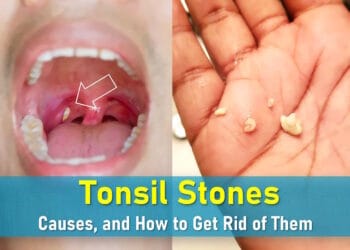Sinus infections, commonly known as sinusitis, can lead to a variety of uncomfortable symptoms, including ear pain. While ear pain during a sinus infection can sometimes result from a secondary ear infection, it often stems from the pressure caused by trapped fluid. Understanding the connection between sinus infections and ear pain is essential for effective treatment and symptom relief.
This article explores how sinus infections contribute to ear pain, the differences between sinus and ear infections, and the shared symptoms that often confuse the two conditions. Let’s also discuss how to identify these issues and the potential impact they can have on your overall health.
Why Does a Sinus Infection Cause Ear Pain?
Sinus infections occur when mucus and fluids build up in the sinus cavities, which are air-filled spaces located in the facial bones. These fluids can travel to the ears through a passageway called the eustachian tube. This small tube plays a key role in:
- Allowing air passage between the ears and sinuses
- Equalizing pressure in the ear
- Draining excess fluid from the ears
- Protecting the ears from internal body sounds
During a sinus infection, the eustachian tube can become blocked, leading to pressure and pain in the ears. This condition can result in a sensation of fullness, throbbing pain, or even a temporary decline in hearing. The ear pain caused by sinusitis may persist for days or even weeks, depending on the severity of the infection.
Sinus vs. Ear Infection: How to Tell the Difference
Although sinus and ear infections are connected due to their proximity, they are distinct conditions with overlapping symptoms. Here’s a breakdown of the symptoms associated with each:
| Symptoms of a Sinus Infection | Symptoms of an Ear Infection |
|---|---|
| Runny or stuffy nose | Hearing loss |
| Headache | Pus-like discharge from the ear |
| Postnasal drip | Itchiness and redness in the ear |
| Cough | Throat pain |
| Facial pain or pressure | Swelling in and around the ear |
It is possible to have both conditions simultaneously. For example, a sinus infection can spread to the ears, or an ear infection may extend to the sinuses due to their shared connection through the eustachian tube.
How Sinuses Function and Their Role in Health
The sinuses are air-filled cavities located on either side of the face, situated between the forehead and cheeks. They are an integral part of the respiratory system and serve several functions:
- Filtration: Sinuses produce mucus and house tiny hairs called cilia that trap and filter pathogens from the air you breathe.
- Resonance: They enhance the tone and resonance of your voice.
- Protection: Sinuses act as cushions during facial trauma.
- Temperature Regulation: They help adjust the temperature of air inhaled through the nose.
However, when the sinuses become overwhelmed by pathogens like bacteria or viruses, they can become inflamed, leading to pain, pressure, and other symptoms associated with sinusitis. In the United States alone, about 29 million adults are diagnosed with sinusitis annually, highlighting its prevalence.
What Ear Pain From a Sinus Infection Feels Like
Ear pain resulting from a sinus infection is typically described as:
- A feeling of pressure in the ears
- Generalized discomfort or pain
- A sensation of fullness or blockage in the ear
Such symptoms occur due to fluid buildup trapped behind the eardrum, often caused by inflammation and mucus accumulation in the sinuses. If untreated, this ear pain may persist or worsen, making it essential to address the underlying sinus infection.
Pain Management: Remedies for Sinus Pressure in the Ears
Sinus infections often cause discomfort, including pressure and pain in the ears. In most cases, these symptoms can be managed at home while your body works to fight off the underlying infection. Here are some effective remedies to relieve sinus pressure and ear pain:
Warm Compress
Apply a warm compress to your nose, forehead, or ear. The heat helps reduce pressure and eases pain, providing a soothing effect.
Cold Cloth
Using a cold compress on the affected ear can help numb the pain and reduce inflammation, offering temporary relief.
Over-the-Counter (OTC) Decongestants
Nasal sprays, saline solutions, or decongestant tablets can relieve sinus congestion and promote drainage, helping to clear clogged ears. Always follow the instructions on the medication and avoid prolonged use of nasal sprays to prevent rebound congestion.
Steam Therapy
Inhale steam from a bowl of hot water or take a hot shower. The steam helps loosen mucus, reducing sinus pressure and ear discomfort. For added benefit, consider adding menthol, eucalyptus oil, or camphor to the water.
Pain Relievers
OTC pain medications such as ibuprofen (Advil), acetaminophen (Tylenol), or naproxen (Aleve) can alleviate ear pain and reduce inflammation. Consult a healthcare provider or pharmacist for guidance on choosing the right medication.
Saline Rinse
Using a saline rinse or irrigation device (like a neti pot or squeeze bottle) can help flush out mucus and relieve nasal congestion. This promotes better sinus drainage and reduces ear pain.
Hydration
Drink plenty of fluids to keep mucus thin and flowing. Proper hydration aids in draining your sinuses and relieving ear pressure.
Avoid Quick Movements and Bending Over
Sudden movements or bending forward can worsen the pressure in your inner ear, potentially causing dizziness. Try to avoid such activities during a sinus infection.
Avoid Air Travel
Avoid exposure to tobacco smoke and refrain from air travel during a sinus infection, as these factors can exacerbate sinus and ear pressure.
By trying one or a combination of these remedies, you can alleviate the discomfort caused by sinus pressure in the ears. However, if symptoms persist or worsen, it’s important to consult a healthcare provider.
Treatment Options for Sinus Infection-Related Ear Pain
Treating ear pain caused by a sinus infection involves addressing the root cause. This may include:
Bacterial Infections
If the sinus infection is bacterial, a healthcare provider may prescribe antibiotics to eliminate the bacteria. However, antibiotics are not usually the first line of treatment unless symptoms persist for over a week or are severe.
Home Care
Most sinus infections are caused by viruses and resolve on their own with supportive care. Common home care measures include rest, hydration, and the remedies listed above. Healthcare providers generally recommend trying these measures before prescribing medications.
When to Seek Medical Attention
If you experience any of the following symptoms, contact a healthcare provider:
- Severe ear pain or pressure
- Intense headaches or facial pain
- Worsening symptoms after an initial improvement
- Symptoms lasting longer than 10 days
- A fever lasting more than three to four days
- Recurring sinus infections within a year
Frequently Asked Questions
What can you do to decongest your ears naturally?
Gently blow your nose while pinching your nostrils and keeping your mouth closed to equalize pressure. Steam therapy and warm compresses can also help loosen mucus and relieve congestion.
How do you get sinus fluid out of your ear?
Using oral or nasal decongestants can help reduce swelling and promote fluid drainage. A saline rinse or neti pot can also be effective in clearing nasal passages and facilitating drainage.
How long do congested ears last?
Congestion from a cold or allergies typically resolves within a few days to a week. Persistent issues, such as chronic sinusitis or ear infections, may take longer and may require medical intervention.
What does ear congestion indicate?
Ear congestion is often linked to allergies, sinusitis, colds, or acute respiratory infections. Other factors like environmental irritants, smoking, or anatomical issues can also contribute.
Can a sinus infection lead to permanent hearing loss?
A sinus infection rarely causes permanent hearing loss. However, untreated or severe infections affecting the eustachian tube may temporarily reduce hearing or, in rare cases, lead to complications like damage to the ear.
What causes the crackling sound in the ear during a sinus infection?
The crackling sound is usually due to fluid buildup or air moving through the eustachian tube as it tries to regulate pressure. This is a common symptom when the sinuses and ears are affected.
How can I sleep better with sinus and ear pain?
Sleeping with your head elevated can help reduce sinus pressure and promote drainage. Using a humidifier in your room may also ease breathing and alleviate discomfort.
Are sinus infections contagious?
Sinus infections caused by viruses can be contagious, especially in the early stages. Bacterial sinus infections, however, are generally not contagious.
Can allergies cause sinus infections and ear pain?
Yes, allergies can lead to sinus inflammation, which may increase the risk of sinus infections. This can also block the eustachian tube, causing ear pain and pressure.
How do I know if I need antibiotics for a sinus infection?
Antibiotics are only effective for bacterial infections. If your sinus infection lasts longer than 10 days, worsens after an initial improvement, or includes high fever and severe facial pain, you may need antibiotics. Consult a healthcare provider for an accurate diagnosis.
Can sinus infections recur frequently?
Yes, chronic sinusitis or underlying issues like allergies, nasal polyps, or structural abnormalities (e.g., deviated septum) can cause frequent sinus infections.
Is ear pain always a sign of an ear infection during sinusitis?
Not necessarily. Ear pain during sinusitis is often caused by pressure from fluid buildup and eustachian tube blockage, not an actual ear infection. However, it’s important to monitor symptoms and consult a doctor if they worsen.
Can stress make sinus and ear pain worse?
Yes, stress can weaken the immune system and exacerbate inflammation, potentially worsening sinus and ear symptoms. Managing stress through relaxation techniques or therapy may help.
What foods should I avoid during a sinus infection?
Avoid foods that increase mucus production, such as dairy products, fried foods, and sugary items. Instead, focus on hydrating and consuming anti-inflammatory foods like fruits, vegetables, and herbal teas.
Summary
While sinus infections with ear pain can be uncomfortable, most cases are mild and resolve with home care. Simple remedies like steam inhalation, saline rinses, and OTC decongestants can provide significant relief. If symptoms persist beyond 10 days or worsen, consult a healthcare provider, as antibiotics or other treatments may be necessary.






























